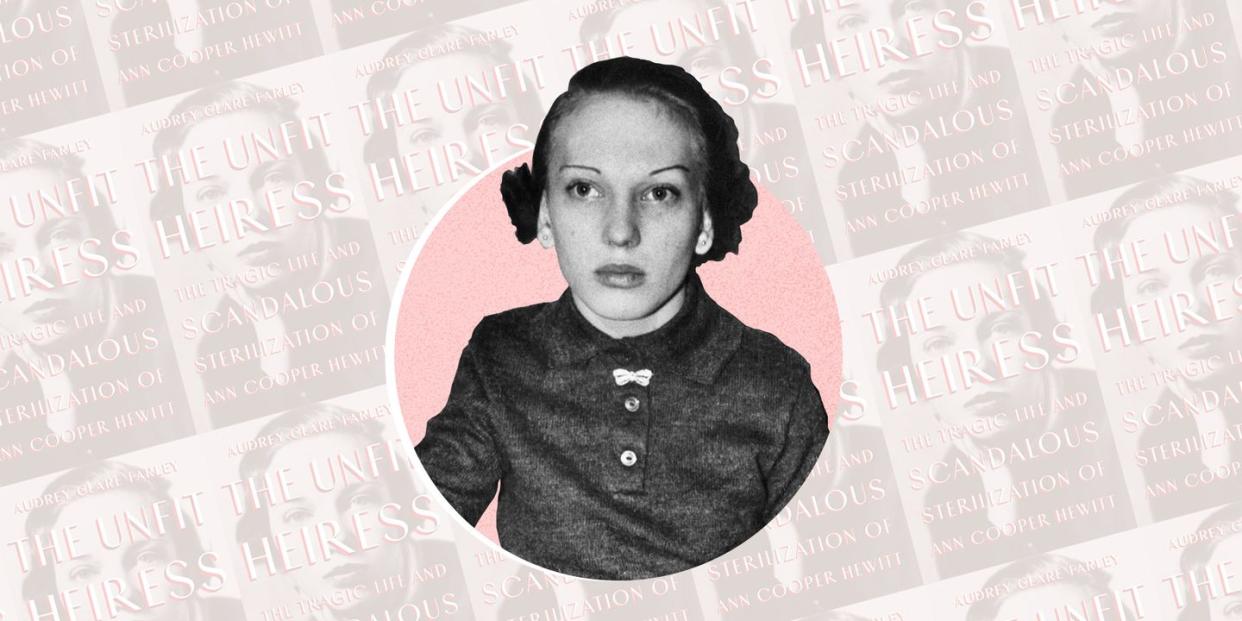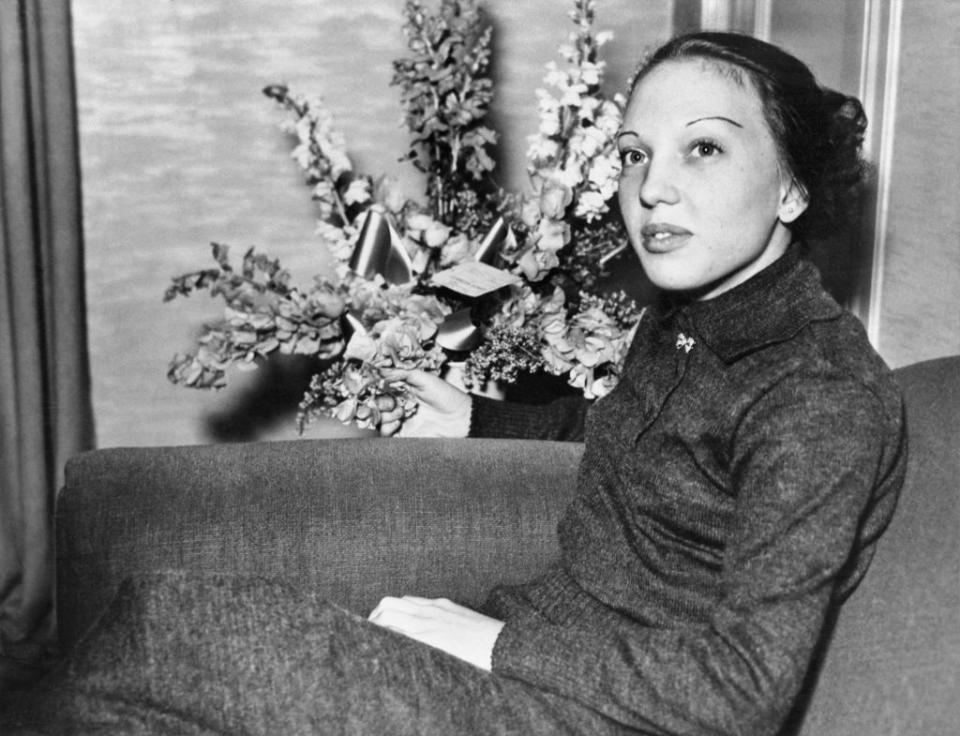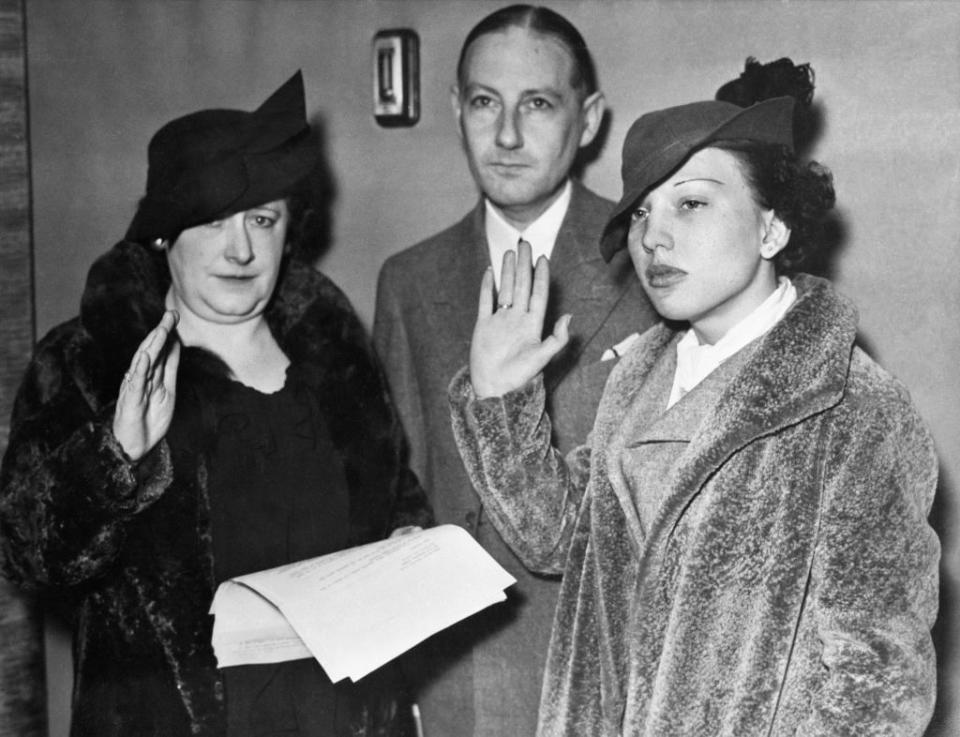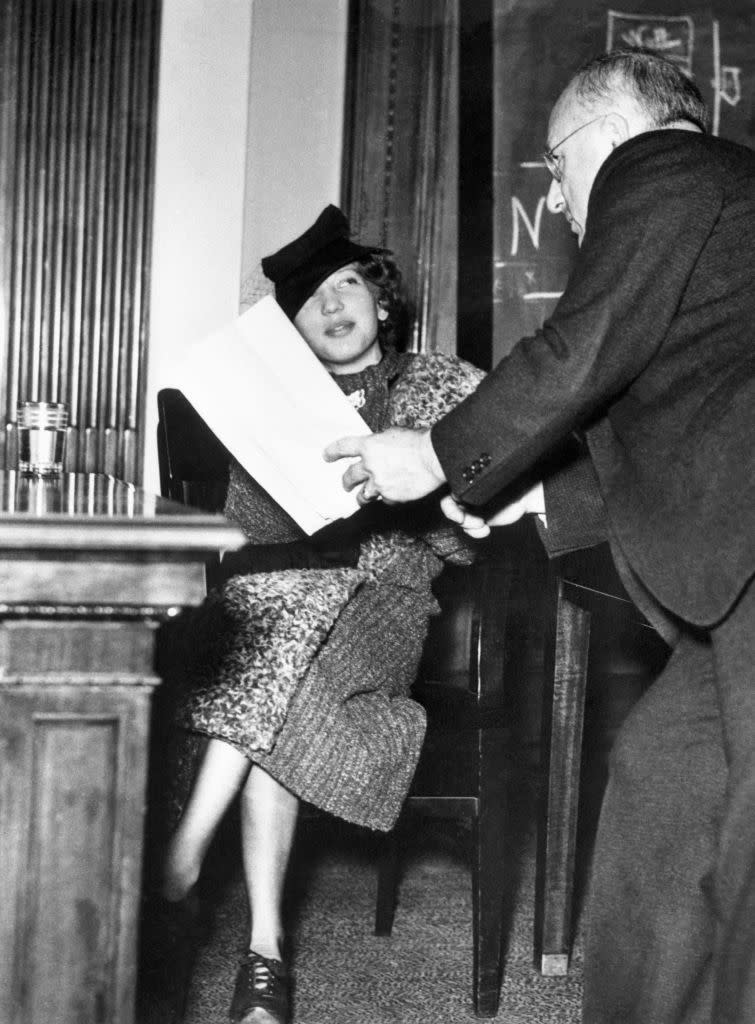Inside the Shocking 1930s Trial of Socialite Ann Cooper Hewitt

- Oops!Something went wrong.Please try again later.
- Oops!Something went wrong.Please try again later.
Bulbs flashed as the socialite, sporting rouge and fur, took her seat alongside her attorney, who had called a press conference in his San Francisco office. The image of the solemn-faced, perfectly coiffed twenty-one-year-old would appear in newspapers across the country. Some, like the New York Times, would print nearly 50 stories detailing the woman’s private life—her childhood, romantic relationships, spending habits, even the lingerie she was wearing. (It was imported from France.) It was January 1936, and heiress Ann Cooper Hewitt was suing her mother, Maryon Cooper Hewitt, in court for half a million dollars. The plaintiff claimed that her mother paid two doctors to “unsex” her during a scheduled appendectomy in order to deprive her of an inheritance from her millionaire father’s estate.

Ann’s father was Peter Cooper Hewitt, whose invention of the mercury-vapor lamp in 1901 earned him more than $1 million. The money from this creation supplemented an already sizable bank account, as Ann’s father was also the grandson of an even more famous engineer—Peter Cooper. Cooper was behind a slew of inventions in the nineteenth century, including gelatin dessert and the steam locomotive. His ingenuity, coupled with investments in real estate, railroads, and the insurance industry, made him one of the richest men in New York City before his death in 1883. Cooper’s children and grandchildren dutifully expanded the family wealth with their own business enterprises. When Ann’s father died in 1921, his estate was worth over $4 million (the equivalent of $59 million today).
Peter Cooper Hewitt’s will stipulated that two-thirds of his estate was to go to Ann and one-third to his wife, Ann’s mother, after his death. The will also stipulated that Ann’s share reverted back to her mother if she died childless. Knowing this, Ann asserted in her civil complaint, her mother had secretly paid two California doctors to remove her fallopian tubes. Mrs. Cooper Hewitt had done this with money obtained from Ann’s trust fund eleven months before her twenty-first birthday—the point at which the woman would have no further say in her daughter’s medical care.

The plot was set in motion in August 1934, when Ann and her mother were at the Coronado beachside resort outside San Diego. Over lunch, Ann talked of becoming an adult and finding a man to marry when she was suddenly struck with stomach pains. Their driver rushed them back to San Francisco, where Ann’s private physician, Dr. Tilton Tillman, was waiting for her at Dante Sanatorium on Broadway. “Well, Ann, I understand you have appendicitis,” said Tillman, upon her arrival at the hospital.
According to the plaintiff, Tillman never examined her abdomen. Instead, he led her to another room, where an alienist (an early-twentieth-century term for a psychologist) named Mary Scally began to ask her civics questions: Why did the Pilgrims come to America? What is the duration of a presidential term? What is the longest river in the United States? When was the Battle of Hastings fought?
“I didn’t pay much attention or know what it was about,” Ann recalled at the press conference.

“Four days later, I returned to the hospital for my appendectomy, which was performed by Dr. Samuel Boyd. No one told me anything else.”
The heiress reported that she stayed at the hospital for several weeks to recover from the procedure.
During this time, she overheard a few staff members asking her nurse how the “idiot patient” was doing. Ann also heard her nurse make several phone calls to Dr. Tillman assuring him that his patient “didn’t suspect a thing.”
“I learned then that my mother and Dr. Tillman had told everyone that I was a mental case,” Ann testified. “I discovered that I had undergone a salpingectomy, having my tubes removed along with my appendix.”

After her discharge, she went home and was kept a prisoner in her room. “My mother made me act as my own maid,” Ann claimed. “Not one housekeeper entered my room during my convalescence. I was forced to live with little more than the bare necessities or comforts of a poorhouse waif.”
When a reporter asked what she meant by the second statement, Ann explained that the telephone and reading lamp had been removed from her room. She couldn’t communicate with anyone or even read the newspaper after dusk—not that one had been delivered to her. At mealtime, she’d hear a knock at the door and open it to find a maid holding some paltry, unappealing dish. Perhaps a biscuit without butter or jam, or a cold leg of chicken with a few lifeless spears of asparagus. The maid would wait for her to take the plate and then re-lock the door behind her.
The reporter hurried to record these details. Only in fiction did people encounter little rich girls imprisoned and made to live a miserly existence.
The Little Princess treatment was not new, the young heiriess told reporters. “I was locked up all the time,” she said. “In fact, as a baby, I was put in a crib with very tall sides. That was so I couldn’t climb out of it. We were living in Paris then.” The heiress recalled how her father, who was not yet married to her mother at the time, would visit the apartment and pick her up. “He was the only one who ever let me out of that cage. My mother never came near me. The maid would come and dress me in the morning, then leave me there for the day. I would often go to sleep in my clothes.”
“So, you remember your father?” one journalist inquired. “What was he like?”
“I remember my father very well,” said Ann. “He was one of the few precious gifts of my life. He was a tall man, very kind and gentle. I think of him walking beside me, suiting his long gait to mine. It seems to me I spent all my happy times with him. He died when I was seven.”
After her father’s death, Ann related, she hardly ever left their apartment. She was forbidden from making friends or having boyfriends when she grew older. “Mother didn’t have one spark of affection for me, and she refused to permit others who did. She always called me an ‘imbecile’ and an ‘ugly duckling.’ She hated my buck teeth and my humped shoulders. And the way my eyes cross when I am tired. She sometimes struck me when she noticed my eyes were going.”
The reporters looked around in disbelief. They knew wealthy women weren’t keen on parenting, but Ann’s claims were truly extraordinary. What would Maryon have to say for herself?
Excerpted from The Unfit Heiress: The Tragic Life and Scandalous Sterilization of Ann Cooper Hewitt by Audrey Clare Farley. Copyright © 2021 by Audrey Clare Farley. Reprinted with permission of Grand Central Publishing. All rights reserved.
You Might Also Like

